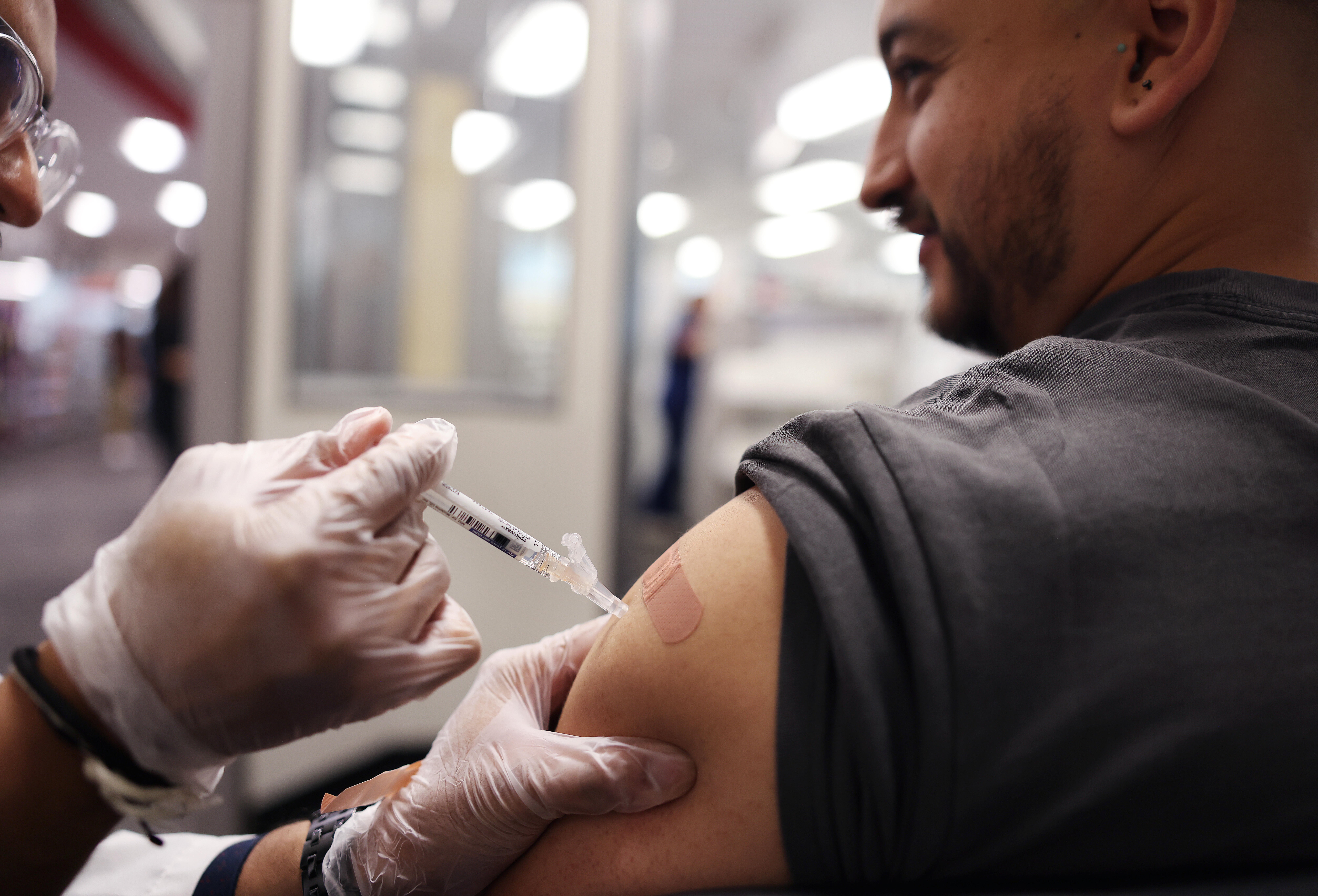Here's how Maryland is protecting access to vaccines.
Maryland Gov. Wes Moore on Friday emphasized his administration's commitment to protecting access to vaccines for residents amid what he called "federal government uncertainty."
It comes after the Food and Drug Administration (FDA) shared updated guidelines for COVID-19 vaccines, limiting eligibility for some age groups and ending an emergency authorization that made the vaccines available for young children.
Vaccine policy changes
Under the new guidelines, people outside of the recommended vaccine groups will need a prescription to get the shot. A doctor would need to prescribe the vaccine off-label.
Due to the changes, pharmacy chains, like CVS and Walgreens, said they now require prescriptions for COVID-19 vaccines in some states. CVS said it will continue offering the vaccines without a prescription in Maryland, along with another 35 states.
Maryland's commitment to vaccine access also comes after the firing of Susan Monarez, the U.S. Centers for Disease Control and Prevention (CDC) director, and after Health and Human Services Secretary Robert F. Kennedy Jr. created controversy while defending the Trump administration's policies during a Senate hearing.
Monarez is suing the Trump administration for wrongful termination. Her attorneys argued that she is still in charge of the CDC, as only President Trump can fire her.
"As federal government uncertainty around vaccine policy has raised questions for many, Maryland public health officials will continue to use science-based guidance to be a trusted resource for people to keep themselves and their families safe and healthy," the governor said in a statement.
WJZ reached out to Walgreens for clarification on its COVID-19 vaccine plan.
Maryland moves to protect vaccine access
According to the governor's office, Maryland residents can access vaccines at healthcare provider offices and pharmacies across the state as long as supply is available.
The governor signed two pieces of legislation to protect vaccine access.
One of them orders that insurance providers, including Medicaid, continue to cover the cost of vaccines that are recommended by the Advisory Committee on Immunization Practices (ACIP). The legislation, which went into effect on June 1, prevents insurance companies from withdrawing vaccine coverage for several illnesses, including COVID-19.
In June, RFK Jr. removed all 17 members of ACIP, the government panel that makes vaccine recommendations, saying it "has become little more than a rubber stamp for any vaccine."
Several medical organizations were also removed from the committee. The HHS Secretary said he would announce new members, though he has not yet done so.
"They will be highly credentialed physicians and scientists who will make extremely consequential public health determinations by applying evidence-based decision-making with objectivity and common sense," RFK Jr. said of ACIP's potential new members.
The governor also signed legislation that requires pharmacists to administer flu and COVID vaccines without a prescription for individuals three years and older.
According to the governor's office, vaccine policy in Maryland is determined by multiple agencies, including the State Department of Health, Maryland Insurance Administration and the Board of Pharmacy.
"While the standards and sources for federal vaccine guidance are now uncertain, Maryland maintains its commitment to careful evidence-based decision-making for patient safety and disease prevention," the governor said in a statement.
The governor's office said school vaccine requirements have not changed. Currently, COVID-19 vaccines are not required for students, but schools can implement their own recommendations.
What other states are doing
Other U.S. states have also taken action to change or affirm their vaccine policies.
Florida is the first state working to end all childhood vaccine mandates. The plan would lift school vaccine mandates for hepatitis B, chickenpox, HiB Influenza and pneumococcal diseases like meningitis, according to the state's health department.
Families in Florida would be able to decide if they want to vaccinate their children. The change was initiated on September 3, but does not go into effect for 90 days.
On the other hand, some states have taken steps to protect vaccine policy and keep their residents informed, including California, Oregon, Washington and Hawaii, which formed the West Coast Health Alliance to guide policies.
According to the governors of those states, the alliance will provide unified recommendations on who should be vaccinated and offer information on vaccine safety.
